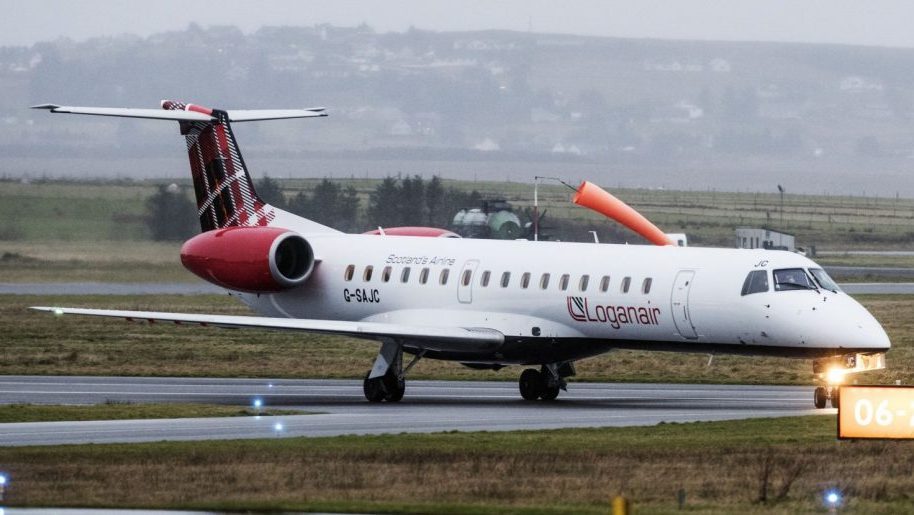
Scottish regional carrier Loganair is likely to ask for further government support to weather the storm of the coronavirus pandemic.
CEO Jonathan Hinkles told the BBC’s Today Programme this morning that while the Department for Transport and Civil Aviation Authority have been providing “superb” operational support, this would not be enough to keep it afloat.
“I think what was made clear by the Chancellor last week is there won’t be an industry-wide bailout programme, airlines have got to try recourse to their shareholders and their lenders first. We respect that, that’s a fair position to take,” Hinkles said.
“But [the Chancellor said] if you can’t bridge the gap after that, only then can you come and talk to us.
“I do think that like the vast majority of UK airlines we will be going back to take up that invite for further conversation with the Treasury in coming days because we have to.”
Chancellor Rishi Sunak said last week that the government would only step in to help airlines as “a last resort”, and that decisions would be taken on a “case-by-case” basis.
The $2 trillion stimulus bill passed in the US last week includes $58 billion in loans and loan guarantees for passenger airlines and cargo carriers.
Analysis from the International Air Transport Association (IATA) estimates that the coronavirus crisis could cost airlines $250 billion.
Hinkles told the BBC that Loganair had been working with its owners, shareholders and suppliers to try and minimise cost.
But he added:
“There is a wider package of support that the government can put in place to help airlines get through this impossibly difficult period.
“This isn’t about deferring payments, it’s about getting rid of payments.
“What no airline can afford to do is rack up huge debts for the future that it’s going to have to service, because we are looking at a position even after this where the demand environment is going to be depressed for quite some time.”
Glasgow-based Loganair has over 70 routes across Scotland, England, the Channel Islands, Belgium, the Isle of Man, Norway, Ireland, Denmark and Germany.
Last week it announced it would run a “skeleton schedule of essential air services” from March 30 until at least April 20.
The following routes are running six times a week:
· Aberdeen-Kirkwall
· Aberdeen-Manchester
· Aberdeen-Norwich
· Aberdeen-Sumburgh
· Glasgow-Barra
· Glasgow-Benbecula
· Glasgow-Campbeltown
· Glasgow-Islay
· Glasgow-Stornoway
· Glasgow-Tiree
· Isle of Man-Liverpool
· Isle of Man-Manchester
· Kirkwall-Sumburgh
· Orkney inter-isles air services
· Stornoway-Benbecula
Hinkles has separately told the BBC that connectivity to remote Scottish islands and rural communities across the UK “cannot be maintained without air services”, and that government support for Loganair is therefore “essential”.
Some of its remote routes are subsidised by the Scottish government.
It also delivers mail and goods, including pharmaceutical products, to island airports.
Following the collapse of regional airline Flybe at the start of this month, Loganair announced it would take over a number of its routes.
Virgin Atlantic, which is owned is 49 per cent owned by Delta Air Lines, is expected to request a government bailout this week.
Asked by the BBC whether he expected British Airways to seek further government support, Loganair’s Jonathan Hinkles commented:
“The magnitude of what we’re dealing with here as an industry is so significant that I would be surprised if any airline is able to get through this without a request for support in some form or another.”
Low-cost carrier Easyjet has grounded its entire fleet, while Ryanair boss Michael O’Leary has said he does not expect the airline to fly in April or May.
Virgin Atlantic will fly just six out of its 41 aircraft for passenger and cargo services in the coming weeks, and has suspended all flights from Gatwick, Manchester, Glasgow and Belfast.












